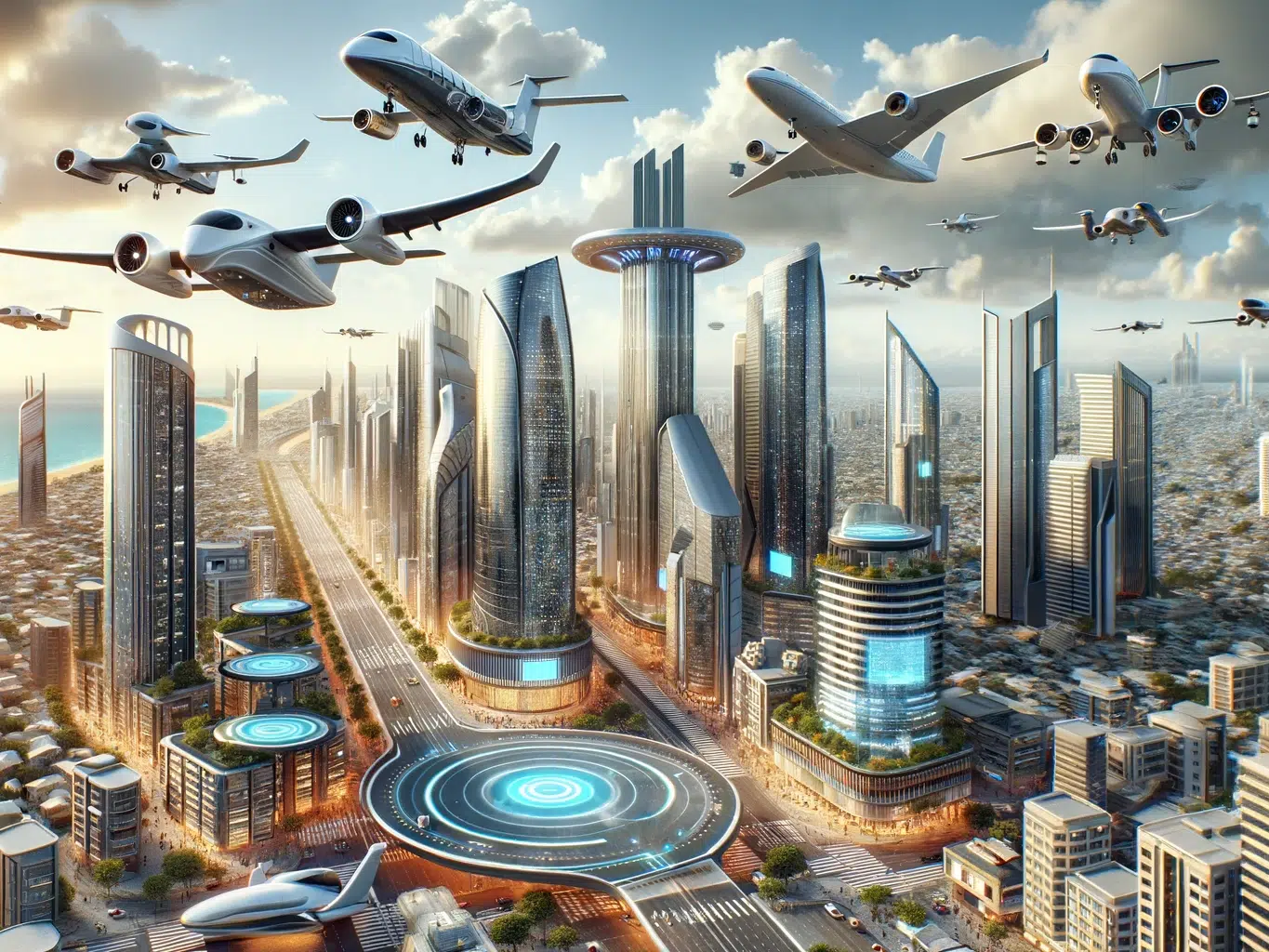As we gaze into the future of air travel, a horizon brimming with innovation and connectivity unfolds before us. The global airline market, currently a significant $563.3 billion industry, is on a trajectory to expand to an astonishing $1.1 trillion by 2030. This growth, driven by a compound annual growth rate (CAGR) of 9.3% from 2022 to 2030, as reported by ResearchAndMarkets.com, signals a transformative era for aviation, one where connected aircraft redefine our travel experiences.

The Rise of the Connected Aircraft
The concept of ‘connected aircraft’ is revolutionizing air travel. These advancements go beyond enhancing passenger entertainment; they encompass operational improvements and heightened safety measures. In this era of connected aviation, we’re witnessing an integration of advanced technologies that optimize flight routes, streamline maintenance through real-time data, and revolutionize the overall journey, paving the way for an innovative future in air travel.
The Economic Powerhouse – US and China

In the rapidly evolving landscape of the airline industry, the U.S. and China are front-runners. With a current market value of $95.1 billion in the US and a projected CAGR of 11.2% in China. These nations are not only leading markets, but also pioneers in connected aircraft technology. Their influential role is shaping trends and standards. This will define the future of the global aviation industry and underscore their technological and strategic leadership in this transformative period for air travel.
A Peek into the Future: What 2030 Holds

The next decade promises a sea change in the airline industry. The focus on sustainable aviation, including the rise of biofuels and electric aircraft, heralds a greener future for air travel. Moreover, urban air mobility, like flying taxis, is inching closer to reality, potentially altering our perception of short-distance travel. The growth in the freight segment also indicates a rising demand for air cargo services, spurred by global commerce and e-commerce trends.
Connected World: Implications for Travelers
The advancements in air travel extend beyond technology to enriching passenger experiences. The adoption of advanced data analytics by airlines means more personalized and efficient journeys for travelers. The era of connected aircraft could lead to competitive pricing and innovative services, broadening the appeal of air travel and making it more accessible to diverse groups of people.
In this new era, air travel is changing. First, Aircraft are becoming more connected. Technology is advancing and there’s a strong focus on sustainability. It’s all promising a more accessible and transformed world. The future of aviation has great potential. It’s as big as the sky. It invites us to explore. Travel will be like never before.
Conclusion – The future of air travel
As we look forward to the future of air travel, we stand at the cusp of a new age in aviation. The growth and changes forecasted for the airline industry promise a world where air travel is not only more technologically advanced but also more attuned to the needs of passengers and the environment.
For a deeper understanding of these trends and their impact on the global market, explore the comprehensive report by ResearchAndMarkets.com. This era of innovation and connectivity is set to redefine our skies and how we traverse them, making every journey an unprecedented experience in the vast expanse of air travel.
- A Milestone in North Korea Tourism: Russian Tourists Arrive - January 14, 2024
- Rediscovering China’s Skies: China International Flights Recovery - January 7, 2024
- Exploring the Philippines: A Record-Breaking Tourism in 2023 - January 7, 2024

